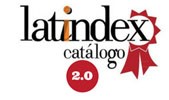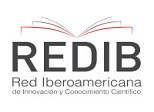Need for a Computer Technology Institute in the Atacames Canton, Esmeraldas Province
DOI:
https://doi.org/10.69890/hallazgos21.v3i1.209Keywords:
computer technology institute; high school students; Atacames.Abstract
To determine the need for the creation of a computer technology institute in the Atacames canton, a quantitative-qualitative research was carried out with an exploratory approach during the years 2012-2014. The inductive, deductive and analytical - synthetic methods were used and contributed in obtaining and the analysis of the results. The technique for collecting the data was the survey; this one was directed to 134 students of the third year of high school and to the managers / administrators of the companies settled in the Atacames canton. 93.28% the students expressed their interest in the creation of a technological institute and 68% of them expressed their pleasure to specialize in careers in the area of computer science. In the survey applied to the managers / administrators of the companies, it was established that there is a labor niche corresponding to 67.64%. Also, the existing job positions in the market were known, with the option of 0-1 being the most choice (41.17%); another item to consider is the preference of employers (63.23%) for professionals with the technological level. In view of this, it is concluded that there is a need to create a computer technology institute in the Atacames canton, its curricular design should be based on the different articles established in the Organic Law of Higher Education (LOES) and the Academic Regime Regulation (RRA).
References
Berni, G.(1971).Educación Y Desarrollo Cultural, Económico, Político, Social. Bib. Orton IICA/CATIE.
Castillo, N., García, E. y Salas, C. (2013). Desarrollo y competitividad de los sectores económicos en México. Universidad Autónoma de Chihuahua. ISBN: 978-1-300-48670-1.
Cardona, G. (2016). Tendencias educativas para el siglo xxi educacion virtual, online y @learning elemenos para la discusion. Recuperado de:http://edutec.rediris.es/Revelec2/revelec15/cardona.pdf.
CEAACES. (2014). Listado de institutitos y conservatorios superiores a nivel nacional. Obtenido de: http://www.ceaaces.gob.ec/sitio/wp-content/uploads/2014/01/ISTT_CEAACES.pdf
Cutcliffe, S. (2004). Ideas, máquinas y valores: los estudios de ciencia, tecnología y sociedad. Anthropos Editorial.
Eastmond, A. (2005). Desarrollo sustentable y el papel de la educación superior en méxico en el fomento de la cultura ambiental. Revista de Educación Superior, (4), 65-67. Recuperado de : http://publicaciones.anuies.mx/pdfs/revista/Revista136_S2A3ES.pdf
Flores, P. (2005). Educación Superior y desarrollo humano. ANUIES
Herminda, M. y Quichombo, M. (2010). Consultado en : http://dspace.ucuenca.edu.ec/bitstream/123456789/1037/1/teco684.pdf
Larrea, C. (2005). Integración, equidad y desarrollo. Flacso-Sede Ecuador.
Malagón, L. (2005). Universidad y sociedad: pertinencia y educación superior. Coop. Editorial Magisterio.
Nuñez, J. (s.f) La ciencia y la tecnología como procesos sociales. Lo que la educación científica no debería Olvidar. Recuperado de : http://www.oei.es/historico/salactsi/nunez07.htm
Pacheco, E. (2010). Capital Humano como factor de convergencia: análisis econométrico de la Euroregión Galicia Norte de Portugal. Univ. Santiago de Compostela.
Pérez, G., Aguilera, M., Otero, A., Sánchez, A. y Acosta, K. (2014), Economía en las grandes ciudades en Colombia: Seis estudios de caso. Banco de la República. Colombia.
Plan de desarrollo y ordenamiento territorial del cantón Atacames (2014). Recuperado de: http://app.sni.gob.ec/sni-link/sni/portal_sni/data_sigad_plus/sigadplusdiagnostico/0860001050001_pdot%20canton%20atacames%20etapa%20diagn%c3%93stico_12-03-2015_12-08-05.pdf
Trupia, G. (2010.). Desarrollo tecnológico y sustentabilidad. Revista Voces en el Fénix, (2), 12 Recuperado de: http://www.vocesenelfenix.com/sites/default/files/pdf/8trupia_2.pdf
SENESCYT. (2014). Conversión de los institutos técnicos y tecnológicos. Obtenido de: http://www.senescyt.gob.ec/Institutos/index.php/reconversion
Zárate, R. y Artesi, L. (2004). Conocimiento, periferia y desarrollo: los nuevos escenarios de la Patagonia Austral. Biblos.
Downloads
Published
How to Cite
Issue
Section
License
Los artículos enviados a la Revista Científica Hallazgos21 deberán ser totalmente originales e inéditos.
Los autores son los responsables de los textos y las imágenes incluidas en los artículos y no necesariamente reflejan el pensamiento de la editorial o de la Pontificia Universidad Católica del Ecuador, Sede Esmeraldas (PUCESE).
Los autores disponen cederle a la Revista Científica Hallazgos21 todos los derechos inherentes para la edición, publicación y distribución o divulgación del mismo.
Se autoriza a las revistas firmantes de los acuerdos de Encuentros de Revistas Latinoamericanas para reproducir en parte o totalmente los artículos con la sola mención de la fuente claramente señalada.







